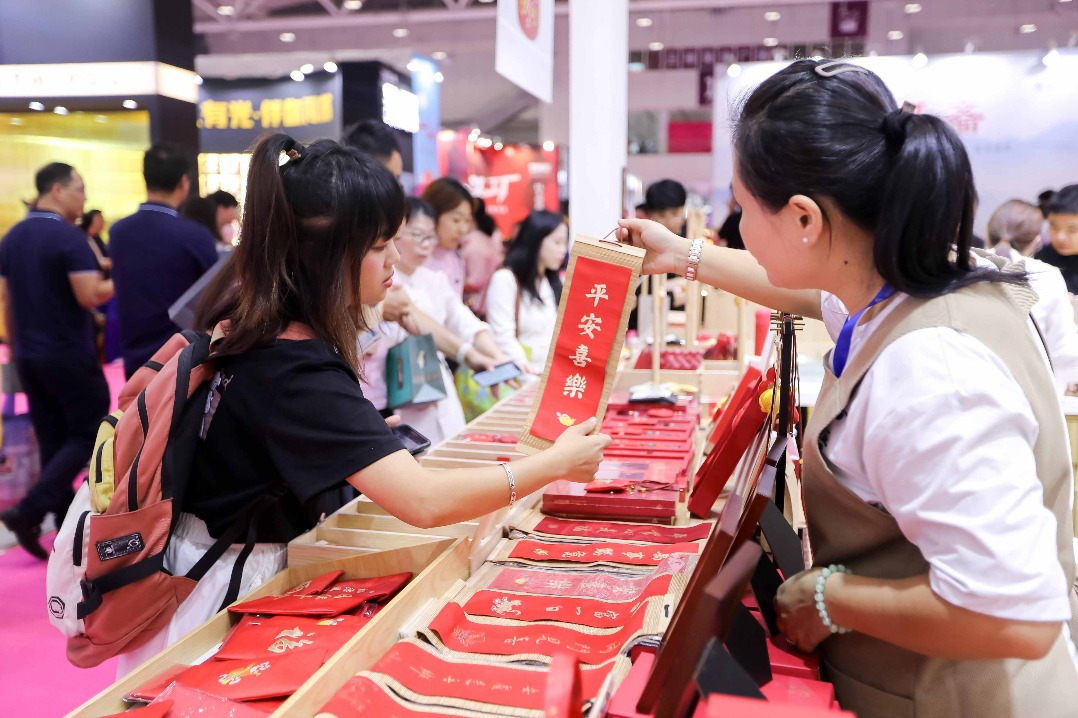Northern Ireland eyes China for post-Brexit certainty

Northern Ireland, once an industrial powerhouse, wants closer ties with China to safeguard against uncertainty as the United Kingdom prepares to leave the European Union.
On Saturday, more than 100 provincial and municipal leaders from China gathered in Belfast, the province's capital, for the third UK-China Regional Leaders Meeting, a gathering created during President Xi Jinping's state visit to the UK in October 2015, at the start of the "golden era" of relations between China and Britain.
"Brexit has prompted us to more actively engage with new markets further afield, and China is a key focus," said Tim Losty, director of the Beijing bureau of Northern Ireland's executive office.
"Up until the last few years, we have looked to the UK, and Europe, and North America as our primary markets. Now, we have a government office in Beijing, we have a Chinese consulate here, some of our businesses have achieved success in China. China is less far away," Losty said.
Decision-makers from the provinces of Hubei, Liaoning, Jilin, and from the cities of Shanghai, Shenyang, Dalian and Benxi were all in Northern Ireland for the gathering. Shenyang and Belfast became sister cities in 2016, and Derry and Dalian became sister-cities this year.
Following the meeting, the Northern Ireland executive offi ce signed agreements with the local governments of Liaoning and Hubei provinces to strengthen collaboration in areas including trade, investment, education, research, and development. Newry and Mourne district also signed similar agreements with the city of Changchun, the capital of Jilin province.
Northern Ireland, which enjoyed its most prosperous time as a shipbuilder in the 19th century, symbolized by the world-famous Titanic, which was launched in 1912, has experienced considerable economic decline in the 20th century as its once-mighty industries have become less needed.
In recent years, it has experienced a structural shift, thanks to newly emerging high technology and knowledge sectors, including creative industries, those involved in health service technology, and agri-food security, which Northern Ireland academics and companies proudly showcased during the summit.
Zhou Jianping, a director-general of the National Development and Reform Commission, said he sees potential for tremendous collaboration and experience-sharing between Northern Ireland and Northeast China, which are both developing new economies to replace declining manufacturing industries.
Such efforts in China's Northeast began in 2003 when the Chinese government launched structured incentive programs to help the provinces of Jilin, Liaoning, and Heilongjiang. The three provinces' per capita GDP grew from $2,000 in 2003 to $8,000 in 2013.
Zhou encouraged Northern Ireland's businesses to explore partnership opportunities with companies in Northeast China because the Chinese government launched a new round of incentive packages last year aimed at revitalizing the region.
"I suggest that, with this meeting as a good start, both sides should enhance communication and experience-sharing between old industrial cities from both countries, promoting overall and multifield cooperation," said Zhou.
The meeting followed October's 19th National Congress of the Communist Party of China, which established China's future strategic direction. The National Congress proclaimed that China is entering a new era of socialism with Chinese characteristics, under which it will further open up its economy, promote cooperation under the Belt and Road Initiative, and favor extensive consultation, joint efforts, and shared benefits.
Wang Shuying, China's consulate general in Belfast, said the fact that China has entered a new era brings "a new strong drive to the China-UK 'golden era'", and more opportunities for collaboration with Northern Ireland.
The province's big push to strengthen its ties with China started in 2012 when Liu Yandong, who is now vice-premier, visited Belfast and opened the Confucius Institute at Ulster University.
In 2014, the Northern Ireland executive office opened a branch in Beijing. So far, 12 Northern Ireland companies have established offices in China, and four Chinese companies have invested in Northern Ireland through acquisition during the past two years.
China accounts for 1.3 percent of all exports from Northern Ireland, which is worth around 100 million pounds ($135 million) a year. The main exports are animal hides used to make leather, electronic control devices, and power-generating equipment.




































